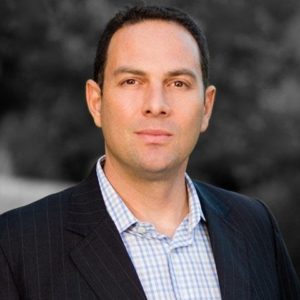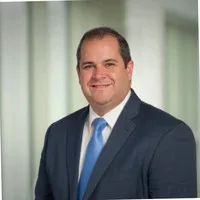Finding the Sweet Spot: Efficiency and Quality with Value-based Care Part 2 | SurgiSnacks Episode 9
Listen On :
Al Norweb and Ozzie Delgado return to expand on value-based care (VBC) in part two. Timing and technology can play a big role in getting patients the right care at the right time while minimizing waste and reducing cancellations. Listen in to learn more about how HOPCo is leading the industry with its transformation to value-based care.
Related content:
Finding the Sweet Spot: Efficiency and Quality with Value-based Care | SurgiSnacks Episode 5
What Do Patients Look For In A Surgeon?
Why Surgical Practices Are Merging
Losing the Paper Weight: Can Software Improve the Patient Experience?
Join us for SurgiSnacks, the podcast that delivers bite-sized insights into the world of surgical coordination. Hosted by Al & Justin of Surgimate, the surgical coordination software company, each episode features practical tips and best practices for streamlining your surgical practice, enhancing your profitability, and improving the patient experience. Subscribe on YouTube, Spotify, or Apple Podcasts.
Welcome to SurgiSnacks, a podcast that serves
up tasty insights for your surgical practice.
Join Al Norweb and Justin Rockman of Surgimate
as they deliver bite-sized episodes that feature
actionable insights and real-world examples to help
you conquer the challenges of surgical scheduling and
unlock your practice’s full potential. Let’s dig in.
Hello and welcome to SurgiSnacks.
My name is Al Norweb, and I
am the Chief Growth Officer of Surgimate.
And if you like to geek out about
the business of surgical practices, then you’ve come
to the right place. Here on SurgiSnacks.
Our goal is to give you bite-sized content 10, 12
minutes long, something that you can hopefully pop in your
ear in the shower or at the gym and get
something useful to help you think about your surgical practice.
I am delighted to be joined by my host or my guest
here, Ozzie Delgado, for the second of a two-part series.
Ozzie, welcome back to the show.
How are you doing today? Great, Al.
Excited to do this again with you.
Agreed.
I really enjoyed the first part of our discussion.
I encourage anybody who hasn’t listened to the first
one go ahead back and take a listen.
I know, Ozzie, you go in a little more
in-depth around what is HOPCo and your bio.
But quickly, for our audience here, could you
give us like the 20 second elevator pitch just
so people are up to speed? Yes.
My name is Ozzie Delgado.
I’m the Chief Operating Officer for HOPCo.
HOPCo stands for Healthcare Outcomes Performance Company, and
we pride ourselves on being the best value-based
musculoskeletal care company in the country.
Impressive.
And just to recap, this is an organization 20
years in the making, delivering this kind of
value-based model and getting better and better at
it over time in many different markets.
So true experts in this world.
And so we’re excited to have you on the show.
And so you may have guessed that our
topic for the discussion is the interplay between
value-based care and the delivery of surgery.
We always have a snack on our show
that’s representative of the topic of the day.
So our snack is dark chocolate because it’s
the perfect balance between bitter and sweet, which
is we’re always trying to find with value-based care, finding that sweet spot.
And we picked Trader Joe’s because obviously, that was the
best budget value for the quality that you get.
So, Ozzie, when we spoke last, we left off
talking about how value-based care, in a lot
of ways, is about delivering appropriate care to the
right patient at the right time.
In some cases, surgery actually being the cheaper alternative
because if that’s ultimately where the patient’s going to
go, that can end up being better than directing
to the right site of care.
Maybe avoiding overnight stay and other expensive
parts of the care is another way
to deliver quality and reduce costs.
Now the question I’m sure many people ask – I know
I think about too, when thinking about how to drive
value-based care in a private practice world –
how do you get your doctors and your organization to
rally behind the value-based protocols you put in place
and the structures that you want them to deliver for
those better outcomes at a better price and cost?
Yeah, I think that’s probably one of the more
frequent questions we get going around the country, Al.
And I’ll tell you a key driver behind that
is, number one, it’s what all the physicians have
been trained to do, I mean, truth be told,
and they see that during a residency and fellowship
training that they end up coming across that.
And now that they’re in practice, it’s about how
do we align the incentives so that they are
doing what they’ve always wanted to do.
But potentially there could be barriers that did not
enable them to deliver what they wanted to do,
but ensuring that we could actually align the incentives
around them that allows them to be able
to deliver how they trained along their path.
And that might include anywhere between quality incentive payment
models to just utilizing surgical scheduling decision support tools
that allows them to be able to align not
just how they practice and manage the care of
patients but how the receiving facility or how aligned
providers other specialties align in the care of the
treatment of that one patient overall.
So HOPCo has a lot of excellence through evidence
based protocols – care paths that we have.
And we certainly bring those to markets that
end up choosing to engage with us overall.
Are they primarily proprietary,
Ozzie you’ve developed them over time
as an organization?
We do, and I’ll tell you we’ve developed them
over time, but
I will tell you it’s not set in stone because
anybody who sets something in Simon, it’s not static.
You have to continue to evolve them as new
research comes out, as new findings come out.
In fact, when we engage in markets, this
is not really a hard push down.
We share openly what we have and really
engage in active conversations and saying, “Well, what
are you seeing in your respective market?”
And maybe there’s something that we’ve missed.
I mean, we’re not here to say we’ve solved
all the problems in the world, but I think
that iterative process only stands to make it better
over time and you’re able to stay current.
And with the latest and greatest of
what’s occurring in the care of these
ultimate patients.
Of course they’re evolving.
That’s an interesting perspective.
And over 20 years I’m sure they’ve continued
to and they will for a long time.
Do you actually use different pathways in different
markets depending on maybe the way the contracts
are structured with your payers or maybe even
demographic differences that you’ve identified?
Yeah, so the care paths don’t necessarily
change or there’s different ones in different markets.
I think treating musculoskeletal patients
is treating musculoskeletal patients.
being said, there might be different factors
that need to be adaptive to a respective market
because there are different pressures or forces that you
need to kind of be mindful of.
And at the end of the day, we’re
still trying to accomplish great outcomes for patients
in the most cost-effective way and that’s
not necessarily the same market to market.
So you have to kind of evaluate that and
say, maybe we did this as part of a
screening process in one market, but that’s not really
relevant here because they all do it.
So how do we evolve that further?
Or perhaps we actually have to take it a
step back and add an extra additional step because
this market wasn’t maybe as affluent as another market
that we were in from a patient perspective.
Okay, so similar pathways maybe, but some
of them need to be re-emphasized because
of the dynamics of that market.
Right, reemphasized or potentially slightly altered specific
to that one market as well.
Okay, so you mentioned just a little bit earlier
the element of surgical scheduling and the administrative piece
of it. That’s obviously our bread and butter at
Surgimate and something we’re very interested in.
How does that play out in the interaction with the doctors
as well as the value-based care model for you?
Like, what are the ways that you leverage
technology and you leverage that part of the
process to deliver what you need to deliver?
Yeah, I think as we spoke in the
last episode, we mentioned how having patients receiving
their care in the right location is important.
And in this model, it’s a lot about the
shift that has occurred from inpatient hospital type of
location care to outpatient same-day ASC care.
The scheduling episode is the scheduling episode and
there’s the clinical decision-making component that involves
the provider and engagement with the patient.
But there’s an entire, as you know, in
Surgimate, there’s an entire administrative component that
needs to be really kind of hardwired and
well refined to be able to deliver that.
And I think understanding that there are differences and
nuances that change with different sites of care from
a location standpoint and incorporating that into the scheduling
process overall is important because we could kind of
mitigate any concerns or issues that may arise and
not allow an unfortunate circumstance such as a cancellation
of a case or a patient who really needs
the pain – that has pain and needs to get
it addressed and now is not able to get
that addressed, and then it gets pushed off a
week or what have you, because we didn’t take
care of something administratively involved in managing that scheduling.
And ultimately that gets us to that episode of care
for the surgical episode.
It’s interesting,
I mean, that’s obviously the topic that I think
we try to drive a lot with organizations.
I think most musculoskeleton and many surgical practices, not
just in orthopedics, they sort of view cancellations as
a cost of business. And they are right, inevitably,
cancellations happen for lots of very legitimate reasons, but
being able to minimize those on the margin can
drive a lot of value.
And that’s very interesting to hear your perspective cause
when you’re delivering value-based care and what you’re
saying basically is if I have to wait, deliver
the right care at the right time, like we
we’re talking about in the first episode, that actually
ends up costing you more as an organization.
So not just delayed revenue, which is an issue
in its own right, but actually worse outcome for
the patient, potentially intervening care between now and then.
Yeah, we see it a lot.
I’ll use it in one of our sub-specialties, hand cases,
where you could ill afford to wait too long.
You don’t want a malunion to occur. And
then that actually is even worse off.
Where there could have been the ability for early
manipulation and treatment of a patient, which could have
set the course off straight, waiting too long actually
becomes detrimental to that outcome of the patient.
That’s a perfect example.
All right, so we only have a few more minutes left.
I want to shift a little bit to some forward thinking.
That’s a little bit of a grab bag, Ozzie.
But first topic, this one I found interesting
listening to a recent discussion on the emergence
of GLP one inhibitors in the U.S.
Maybe a tidal wave that’s sort of
coming in terms of their use and
their apparent effectiveness in lowering weight. Right.
And weight bearing is comorbid with
a lot of musculoskeletal conditions, right.
So heavier people tend to have
more issues with joints, etc.
Have you guys been thinking
about this as an organization?
Is this a threat or is this an opportunity in a
value-based care model that we might be looking at a
real drop in the obesity rates in the U.S.
Which is a wonderful thing, right.
How does that affect your business?
Is it good or bad?
I think we embrace it as a positive welcoming
because when you look at all of the professional
society recommendations out there, BMI is an indicator that
leads to poor outcomes for surgical outcomes.
So some patients that are morbidly obese
and just have too high of a
BMI are ruled out for surgical interventions.
So I think when you look at these new
kind of options for patients that actually allows them
to lose weight, from our perspective, we see that
that allows them to rule in.
Now for a surgical intervention that gives them a fighting
chance to really fix the cause and issue and allow
them to kind of return to maybe a more active,
healthier lifestyle with their ability to be able to kind
of shave off that weight overall.
So we actually see that as a
very positive outcome and welcome it.
I love that perspective.
So ideally and optimally, you have less patients who
have issues because of their weight, but the size
of the patient pool that you can address actually
because of these comorbidities and these risks during surgery
being reduced actually presents as an opportunity.
Also to our discussion around ASCs, obesity tends
to be one of the driving factors of
not being able to operate inside the ASC,
so you continue to allow for that trend
to go forward, which I think is good. Great perspective.
All right, so hopefully we have time for one
more, so I’m going to squeeze this one in.
Love your perspective on this thinking for what’s on
your wish list for – particularly as we talked about
the administrative side of scheduling and preparing,
coordinating surgeries – what would be on your wish list,
or what do you think is coming down the
pike in the future that hopefully will lead to
better results for patients and for your organization.
Yeah, I think… You’re going to give me a wish list.
There are a lot of administrative burdens that are
put on health care in general, whether that be
private practice providers or health systems or what have
you. Or the payers have to put certain barriers
in place to protect themselves as well.
My wish list is to say, look, we are all
practicing under a kind of an earned-accreditation principle that if
you do things the right way and determine what the
right way it is to care for the health of
a population, you earn your badge, if you will, and
you eliminate these unnecessary barriers and hurdles that are currently
fraught within our industry.
That only adds excess costs and excess waste
and an excess burden in actually impeding the
ability to treat and manage more lives and
more healthier, more populations in general overall.
So my wish list would be that we would kind of come
to some model that allows us to be able to deliver that
and streamline that.
Yeah, I think Texas has been working on this, and I think
New York, but like Golden Laws, for example, once you
heard of them, but they’re not common enough, right, where
if a doctor passes a screening period and shows that
their prior authorizations are appropriate, etc, etc, then
we go to like a TSA model.
Maybe once in a while we’re going to hit you with a
prior auth, but why do we need it every time, right?
And actually, it’s better for the payers as
well, because they’re spending a fortune on all
the administrative work to evaluate them.
And so there’s a lot to be
gained on that side, for sure.
Those are the costs that are taken from the system
that could be reported back into the system overall.
Yeah, to help patients at the end of
the day, because none of this stuff is
really helping the patient that much.
It’s more just how we organize ourselves.
Well, we continue to want to be at the forefront
of those changes and be part of the solution.
Ozzie, it’s really been a pleasure having
a chance to speak with you.
I can’t thank you enough for joining us, and I
hope our audience enjoys the insights that you provided.
As always, please leave us your comments or
provide any feedback or ideas you have for
future show topics, we’d love to hear them.
Thank you very much for tuning into another
episode of SurgiSnacks, and we look forward to
talking to you the next time. Ozzie, thank you.
Thanks so much. Take care.
Thanks, Al.
MEET THE HOSTS

Justin Rockman
VP of Business Development
The industry expert on surgical scheduling workflow optimization, Justin consults for surgical practices and lectures nationwide. Justin joined Surgimate after 8 years as a founding member of an IBM-acquired startup. A devoted husband and father of four, ultra-marathoner and lover of the outdoors, Justin studied law at Monash University and earned his MBA from Bar Ilan University.

Al Norweb
Chief Growth Officer
Al Norweb is focused on everything and anything that brings the power of Surgimate to more surgical practices. Al mostly recently served as the General Manager of Orthopedics for a leading EHR and practice management software company where he oversaw a near quadrupling of their book of business. Based in Miami, FL, Al holds an MBA from Harvard Business School, an MPA from Harvard Kennedy School, and a BS in Economics from Duke University.
be our guest?
Would you like to be part of our next podcast episode? If so please contact us for more details.










Ozzie Delgado is the COO at HOPCo, a visionary leader in the healthcare industry, with extensive experience in healthcare management and strategic leadership, holding an MBA in Healthcare Administration.
Osmel “Ozzie” Delgado Chief Operating Officer at Healthcare Outcomes Performance Co. (HOPCo)